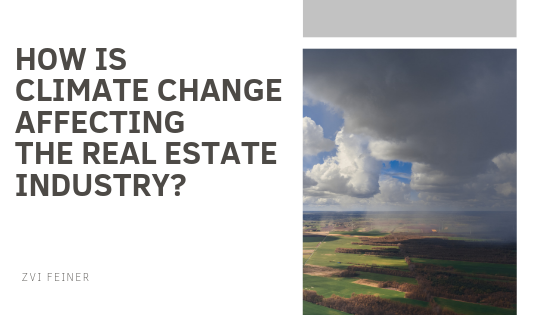The shifting climate patterns and changes in weather conditions, as brought about by climate change, are largely affecting many aspects of our lives. The real estate industry is expected to feel the rippling effect of various the various impacts of climate change, such as excessive rain. Here are some of the ways climate change is gradually impacting the real estate industry.
Increased Property Prices
In our country, climate change is primarily felt through the numerous hurricanes and severe storms that hit hard on our homes. Engineers and real estate developers have responded positively by ensuring that they construct homes that can withstand the destructive forces of hurricanes and floodwaters. The general effect thereof has been the consequent rising in property construction costs. Such costs are often transferred to the home buyers, thereby leading to the consequent increase in property prices.
Higher Home Insurance Premiums
One of the unfortunate effects of climate change in our country is the substantial damage of property that we have to sustain. It was reported, for instance, that the cumulative costs of weather-related disasters affecting the real estate industry since 1980 amount to $1.5 trillion. Insurance companies cover much of this damage.
To ensure sustainability, property insurers are expected to increase the underwriting costs for homes. Homeowners are, therefore, expected to pay more insurance premiums to cushion themselves from adverse climate change forces, such as hurricanes, floodwaters, and severe storms.
Reduced Demand for Certain Homes
The Federal Emergency Management Agency (FEMA) is expected to increasingly revise flood maps to cater for the rising sea levels as well as the shifting climatic patterns that often lead to floods in residential areas. The consequent earmarking of certain regions as highly prone to flooding will, most likely, dissuade persons from investing in such properties. The demand for properties fronting the east coast, which is prone to hurricanes and storms, will substantially drop. The value of properties in New Jersey, for example, was reportedly down by 34 percent due to the area’s prone to flooding.
More Property Taxes
The rippling effects of climate change on real estate properties are also expected to cause more homeowners to pay higher property taxes. As demand for properties in certain areas fronting water bodies drop substantially, the few remaining residents will be required to pay a little more taxes in order for the government to be able to cater for the infrastructural demand.

